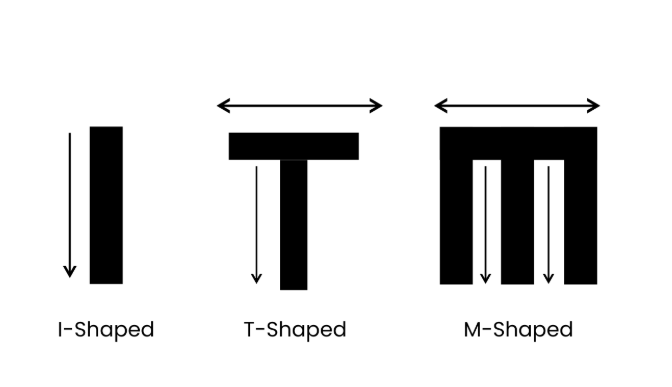
The Innovation Hesitation Mindset
In fables and fairy tales and most novels, there’s always an antagonist. For now let’s call them the Big Bad Wolf, a clear antagonist that must be reckoned with. Always, the first step to defeating the Big Bad Wolf, as Little Red Riding Hood would tell you, is recognizing it.
So, what is the Big Bad Wolf of innovation?
I have worked in the innovation space for many decades now, and based on my experience, there is not one single thing you can point to as the Big Bad Wolf. Rather, the Big Bad Wolf is an overarching “innovation hesitation” mindset that has become ingrained in many companies and our country at large. It’s a mindset that claims to treasure innovation but hesitates to actually innovate. This mindset breaks down into three core issues.
Issue #1: We have become a zero-sum society.
In a no-holds-barred competitive environment, those at the top believe that if the competition wins, they lose, and in many cases they are right. In some cases, competition increases the size of the market, but that is often hard to see from the C-suite. Regardless, big corporations are forced to worship one god: profit. As much as corporations may say they want to innovate, actions speak louder than words. All they really care about is the bottom line and how it reflects on their stock price. So they slash wages, keep production costs at a minimum, and in general try to milk every last ounce of profit. Everything is about “maximizing” and “optimizing,” and they dare not engage in anything that risks the ire of the stock analyst. This kind of environment leaves little room for innovation.
Here’s the great irony: some things in business are a zero-sum game, and innovation is key to winning that game. The market, in general, is only so big, and other companies are constantly looking to take your market share. There’s constant pressure to keep up and stay ahead. If you’re not innovating, you can be sure that others are, and they’ll surpass you.
Issue #2: We have become beholden to the fiscal quarter.
The IBM Institute for Business Value found that organizations that embrace open innovation (meaning innovation that takes advantage of the collective intelligence of the entire business ecosystem, not just internal company knowledge) have a 59% higher rate of revenue growth. A 2021 Deloitte study similarly found that organizations with a leading innovation maturity were almost twice as likely as the average to have revenue increase by more than 20%. Innovation (particularly mature, established innovation) equals more money and faster growth
Here’s another great irony, though: while innovation is good for the bottom line, few companies embrace and invest in open innovation. Part of the reason is the zero-sum mentality, which leads to secrecy and silos instead of the sharing of knowledge. The other part of the reason is an obsession with the fiscal quarter.
Our zero-sum society is also a short-sighted one. Corporations don’t just want profit; they want profit right now and always. Corporations do want innovation, but they want those innovations to simply appear as positive cash flow to the bottom line within a few short quarters. They want all the rewards of innovation without any of the costs.
The reality of innovation is that it requires both time and money. It’s not a get-rich-quick scheme. It’s a long-term investment. When the biggest concern is the shareholders' requirement for quarter-over-quarter profits, instead of investing in research and development (R&D) that may not generate a profit for years or decades, this single-minded obsession with the quarterly return will have us race to the bottom fast.
Issue #3: We have become increasingly risk-averse.
As a society, we have also become increasingly risk-averse. This should not shock us. The 2007–2008 housing crash and financial crisis destroyed our comfortable belief that whatever the bump, our major investments, like our houses and retirement, would see us through. Then the COVID-19 recession upended everything we thought we knew about work. Now we face a coming AI revolution and increasing effects of global climate change. Is it any wonder that people are scared? We are scared for our jobs, for our retirement, for our children. What’s not to be scared of?
Of course, scared people do not take risks. What little we have, we simply want to hold on to. This applies to corporations as much as people. Corporations have been risk averse for years. Investors reward the bottom line, not risky innovation. So corporations opt to let others innovate, and when those others succeed, they’ll simply buy up the solution. It’s cheaper, or so they think, to let someone else take the risk out of innovation and then pick up the low-hanging fruit of the breakthrough. They overlook the fact that the low-hanging fruit of someone else’s risk is usually the fruit smashed and rotting on the ground.
There is no innovation without risk, and in a risk-averse society, that means there is little innovation.
The Big Bad Wolf of Innovation
This hesitant innovation mindset has put innovators into an impossible position. It’s a catch-22. You must innovate, without being given the environment needed to innovate properly. You must produce results, without incurring any costs. You must forge into the unknown, without taking any risks.
Faced with the Big Bad Wolf, many will fail to innovate. They might try, but like in “The Three Little Pigs” fable, they will build shoddy houses of straw or sticks that fall at the first wind and leave them open to being eaten.
In the end, though, the Big Bad Wolf doesn’t win. He is outsmarted and outmaneuvered by the third little pig. As innovators, we must resist taking the easy path and innovate anyway. We must build a brick house, so that no matter how much the Big Bad Wolf may huff and puff, he won’t blow our house down.

